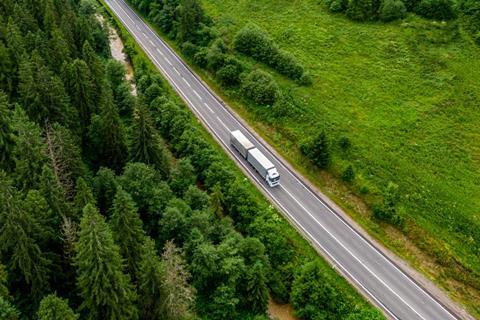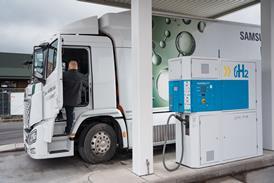Total Cost of Ownership calculations are often used to compare the costs of alternative vehicles over their operating lifetime. Whether comparing between traditional diesel vehicles or looking into alternative fuels or technologies, TCO has been the go-to method to compare capital cost (Cap-Ex) and operating cost (Op-Ex) over time to determine the best choice of vehicles. These days TCO calculations often also include vehicle emissions data projections to asses the environmental benefits and costs of different technologies.
The TCO calculation will include fuel or energy costs, maintenance costs, taxes and other operating costs along with the costs or for congestions zones, tolls and low emission zones, the idea is to include as many known variables as possible to give a complete picture of costs throughout the vehicles operating term. The vehicle price, finance costs, residual value and any infrastructure investments can all be fed in to the calculation to produce comparable figures on which to make informed investments.
Over the past 18 months TCO calculations have been getting trickier - the cost of all fuels and energy have spiked to record levels, markets have become unpredictable with no sign of things settling down. These increases impact renewable energy and fuels too – HVO and other bio-fuels have been hit as their manufacture requires energy and electricity prices are currently linked to fossil fuel costs. The predictions of falling battery prices have not materialised either, in fact, the increase in demand for traction batteries has seen costs increase well above inflation as production of battery cells requires substantial amounts of energy, plus there is increased competition for raw materials.
On top of all the uncertainty in energy markets we have record inflation levels, we have rising interest rates, making vehicles more expensive and more costly to finance.
Where does this leave the humble TCO spread sheet or the Motor Transport Operating cost tables?
Impossible? Misleading? Impractical? Worthless?
No - TCO is still the best method we have, but their value is deing diminished because there are so many moving parts and the parts are moving faster than ever.
Given the declining value of TCO calculations, how are operators expected to make the huge investment decisions required to decarbonise their operations? We face the biggest transition in freight transport for more than 100 years in, arguably, the toughest financial conditions of the past 50.
What can operators and users of road transport do to stay on track with decarbonisation against this backdrop of turmoil?

Firstly we have to accept, that without a substantial re-think of supply chain practices, logic and duty cycles, decarbonising our sector is going to cost and the costs are difficult to predict. We’ll leave re-engineering the supply chain for another day, but for now let’s assume costs have to be passed down the supply chain to the end customer.
The cost needs to be weighed up against the benefits of decarbonisation even if the costs are somewhat unknown. The only option, in our opinion, is to engage customers in the discussion and for them to engage their customers too. When selecting and evaluating transport providers an engaged and informed customer is more likely to be open to discussing options and pathways.
Attempting to absorb increased costs with the intention of passing them on later is a recipe for disaster. Many operators have already crossed the rubicon of including energy cost escalators or surcharges in their transport contracts, this is even more important when discussing alternative technologies. The initial operating period will likely be longer than is familiar with diesel trucks and repurposing trucks will be far more difficult with low emission vehicles.
Three year contract hire has been a staple of many operations keen to not just keep their fleet fresh, but to have the agility to get out quickly if the need arises, three year deals are unlikely to be common with alternative technologies as longer primary periods are normally necessary to offset increased capital costs with reduced energy costs, so the theory goes.
Open book contracts are one method of working in partnership with customers, they help both parties understand the other’s perspective and critical costs but won’t be suitable for some situations. Longer term contracts are another way of ensuring providers are not left holding the baby.
Many practices that have been implemented over the years in the pursuit of excellence could be counterproductive in the journey to net zero - the three year rolling contract, the ‘three strikes and you are out’ method of managing suppliers or excessive fines.
If purchasing decisions can’t be based on cost, because the costs are unknown, what’s the best way forward?
The route taken to decarbonise an operation needs to be based on operational suitability, carbon intensity and practicality. Decisions based on these parameters with an engaged customer are likely to be the most fruitful, regardless of future energy costs. Choose a technology that you are the most confident in making work for your customer. There is great value in decarbonising, even if the costs are higher or unknown – reduced CO2 emissions have value for everybody. However, it may not be possible to do as much as a customer wants within operational or financial constraints at first, this can only be properly understood by undertaking trials and keeping up to date with technology and engaging in discussion with all stakeholders.
For transport buyers – choose partners based on reliability, service levels and willingness to work together to solve problems. New technology will always have teething problems, be aware of the potential difficulties and discuss the remedies and agree on the ‘what-ifs’ beforehand – discuss the unknown future cost of energy and how they will be covered along with your decarbonisation targets.
There is always the fear in transport of being undercut by a competitor, this fear will potentially grow in the future with some operations embracing new technology and others sticking to what they know in an attempt to win business with lower or more predictable costs. Some transport operations are not covered by contracts and operate on an ad hoc basis, this makes it even more important to work with your customers and understand the value of decarbonisation to them and their customers.
There will be a shift at some point when it will become increasingly difficult for higher emissions vehicles to compete, again regardless of the unknown costs. Customers who decarbonise their supply chains never go back.


















